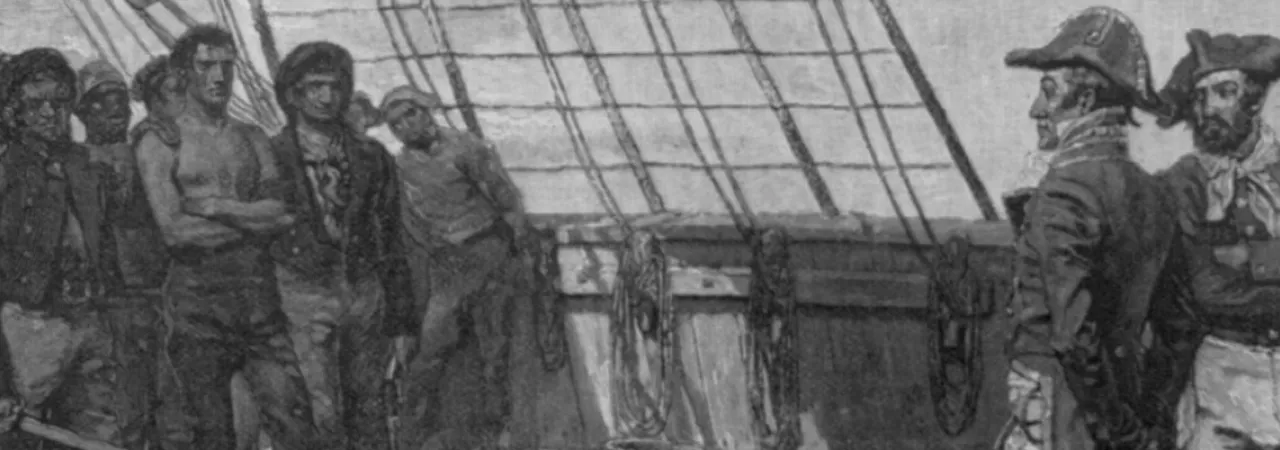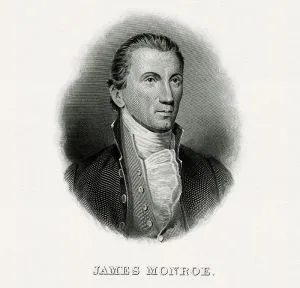
In the first few years of the 19th century, the great powers of Europe raged against each other during the Napoleonic Wars. Great Britain, the nominal head of the many coalitions warring against the French Empire, simply could not defeat Napoleon Bonaparte in battle and so relied on its naval power to limit his authority.
A navy needs ships, however, and ships need crews, and Britain was running out of people who willing to volunteer for the life of a seaman. Instead, they turned to impressment, essentially a crude draft, of criminals, debtors, and merchant seamen, including American seamen. The practice of impressing Americans began early in the European Revolutionary Wars of the 1790’s when Britain imagined a swift victory and American anger was easily placated. Great Britain also justified it by arguing that many of the crews they captured were British subjects that defected to American ships. While there was limited truth in this statement, the early victory failed to pan out, and the practice became a major sticking point in Anglo-American relations.

British and American diplomats had been temporarily able to resolve the issue with the 1795 ratification of the Jay Treaty, which failed to completely end the practice, but did convince the British to pay for damages to American shipping. But that treaty only remained in effect for 10 years, and so in the December of 1806, Minister to England James Monroe and diplomat William Pinkney met with their British counterpart to renew the earlier pact, and finally resolve to permanently cease impressment of American citizens by the Royal Navy.
Their attempts were not a stellar success. They succeeded in obtaining a concession to renew the Jay Treaty, which likely included the same monetary settlements as the last agreement, but Britain was more desperate than ever to stop Bonaparte. Napoleon at the end of 1806 was at the absolute height of his power, having decisively crushed the Russian, Austrian and Prussian armies at Austerlitz (1805), Jena (1806), and Auerstedt (1806). Britain had absolutely no intention of sacrificing a potential source of manpower when this titanic threat loomed over their head, and so the two sides once again failed to come to an agreement on the issue.
Compounding matters was the fact that the President currently occupying the White House, Thomas Jefferson, was generally predisposed towards anti-British policies. Jefferson and his party, the Democratic-Republicans, never particularly favored the original Jay Treaty precisely because it failed to put an end to impressment, as well as favoring the potential for the French Revolution to abolish all the old monarchies of Europe. Bonaparte’s coronation as Emperor put an end to that fantasy, but Jefferson still felt he had no obligation to save Britain from defeat. Furthermore, after occupying Prussia, Napoleon issued his famous Berlin decree which announced a complete blockade of the British Isles from trade, and Jefferson felt he had no reason to cross Napoleon by maintaining a special trade relationship with his opponents. Jefferson also needed to stay on Napoleon’s good side if he were to ever acquire Florida for the United States, still controlled by French ally Spain.
Without the support of the President or any other prominent members of his party, the Monroe-Pinkney Treaty had no chance of ratification in the Senate and so fell by the wayside. Months after the treaty was rejected, the British ship HMS Leopard fired upon and boarded the American frigate USS Chesapeake in search of deserters from the Royal Navy. The incident was an outrage in America, and very nearly sparked a war between the two nations. They did not come to blows just yet, but the fallout from the affair did lead to the passing of the 1807 Embargo Act against both Britain and France, and contributed to the air of tension that eventually led to the War of 1812.





